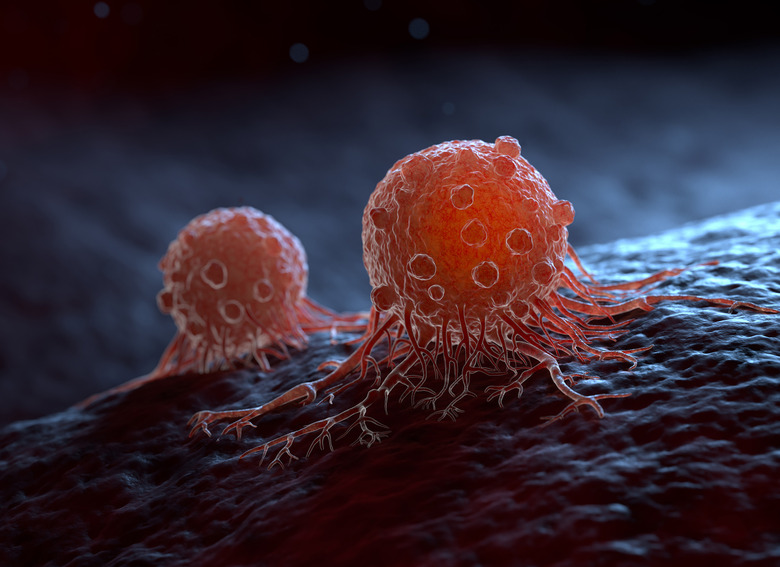New Cancer Treatment Increases Efficacy By Injecting Chemo Directly Into Tumor Cells
Chemotherapy has proven to be a fairly successful treatment for cancer. But there's one big problem: the drugs attack almost everything they touch. So what if we could only put it where it needs to go? that's the idea behind a new type of cancer-fighting antibody, which scientists say can help deliver chemotherapy drugs directly to the tumors they need to target instead of targeting the entire body. These are called antibody-drug conjugates.
This approach, however, isn't an entirely new idea. The Food and Drug Administration approved the first antibody-drug conjugate in 2000. That treatment was used to treat acute myeloid leukemia. Other types have followed in those same metaphorical footsteps, but over time, scientists have been coming up with ways to make those antibody-drug conjugates even better.
In fact, according to a review in Cancers published last year, more than 100 of these cancer-fighting antibodies are currently in clinical development. However, two recently presented antibody-drug conjugates could help treat breast cancer and multiple myeloma. They've already shown good success in helping patients live longer without their cancers progressing, and researchers say that they feel these antibody-drug conjugates are evolving and here to stay.

There are, of course, a number of benefits to having a more targeted approach to fighting cancer. Not only do you get to avoid a lot of the possible collateral damage to other cells, but by putting the chemo directly into the tumors, you're ensuring that more of the drug gets inside the tumor cells. This allows the drug to work more effectively, which could mean fewer treatments being needed in the long run.
The cancer-fighting antibodies also allow doctors to use more potent drugs because they don't have to worry about those stronger doses attacking as much of the patient's other cells. Of course, this treatment option doesn't eliminate the side effects entirely. Patients can still experience some side effects, such as low white blood cell counts and hair loss. But, overall, it allows for a safer delivery system for the drugs needed to prolong their lives and help cull the cancer cells before they can spread.
Considering the number of new cancer treatments we've seen—like the really awesome cancer-killing light treatment—these antibody-drug conjugates are just another way that research continues to make fighting disease much more effective.
